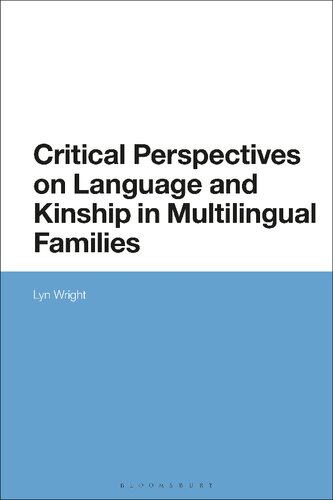
Critical Perspectives on Language and Kinship in Multilingual Families PDF
183 Pages·2020·2.087 MB·
Most books are stored in the elastic cloud where traffic is expensive. For this reason, we have a limit on daily download.
Preview Critical Perspectives on Language and Kinship in Multilingual Families
Description:
Applying critical kinship studies to the study of multilingual families, this book foregrounds kinship, gender, and sexuality in discussions of family language ideologies, practices, and planning and affords a new point of view on family language processes. Focusing on historically marginalized families in multilingual family research (including adoptive, single parent, and LGBTQ+), the book centers nonnormative family configurations as a way to focus on kinship processes. It explores the construction of family in private and public spheres, including interview and interactional data in homes as well as public forms of production such as memoirs, documentaries, and even comedy.
See more
The list of books you might like
Most books are stored in the elastic cloud where traffic is expensive. For this reason, we have a limit on daily download.
